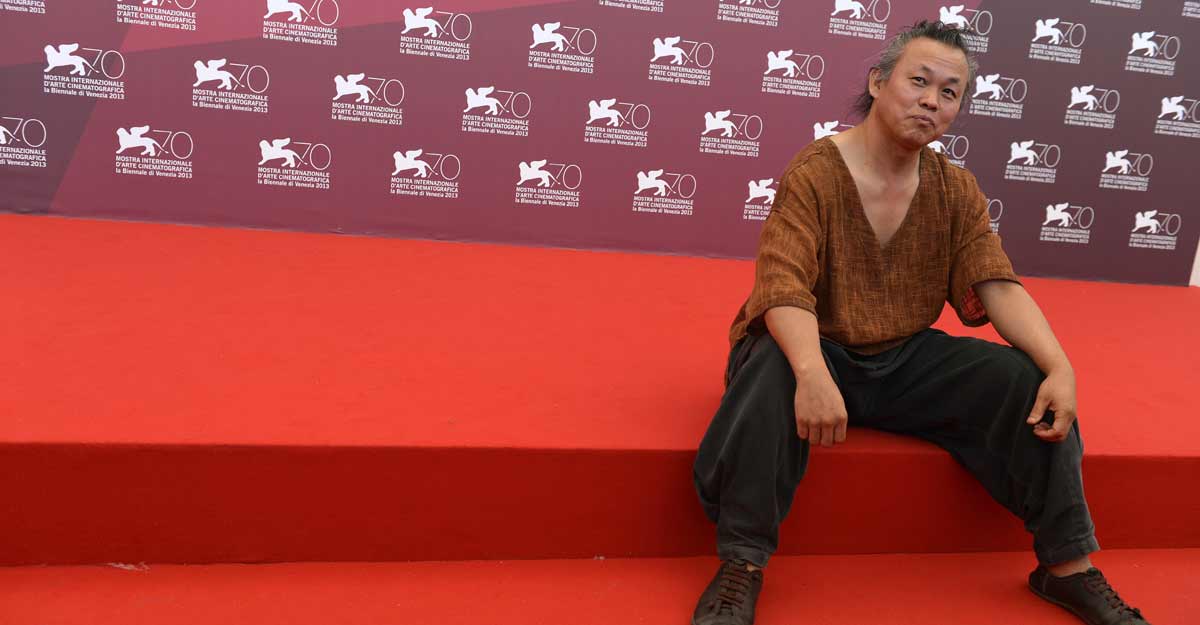South Korean filmmaker Kim Ki-duk dies from COVID-19 complications

Mail This Article
Popular South Korean art-house filmmaker Kim Ki-duk died after contracting coronavirus in Latvia, according to media reports.
The 59-year-old has been in the European country for the past one month and unofficial sources claimed he had been hospitalised with COVID-19 symptoms recently.
According to South Korean website Naver, the news of his demise was reported by Russia's TASS news agency, citing the Latvian news agency DELFI on Friday.
The filmmaker passed away at a hospital in Latvia, where he had arrived last month to buy a house, DELFI reported. The news of his death was confirmed by Russian director Vitalijis Manskis to DELFI.
Kim Ki-duk is the only Korean filmmaker to receive top honours at the three major international film festivals – Cannes, Venice, and Berlin. His notable works include Pieta, 3-iron, Spring, Summer, Fall, Winter... and Spring, Samaritan Girl, and Moebius.
According to South Korean news channels, Kim's body is currently at a Latvian hospital.

Kim was known for his peculiar movies, which were often laced with provocative themes like sex, violence and animal cruelty.
Kim Ki-duk has a large fan following in India, especially in Kerala where his movies are regularly screened at film festivals. He had paid a visit to Thiruvananthapuram in 2013 to attend the International Film Festival of Kerala where he was mobbed by enthusiastic fans while taking a stroll through the city.
Journey to fame

Born on December 20, 1960 in Bonghwa in North Gyeongsang Province, South Korea, Ki-Duk studied fine arts in Paris from 1990 to 1993.
He started his film career as a screenwriter and made his directorial debut with 1996 feature Crocodile. The film, which explored themes of suicide and abuse, was an instant hit in the country.
Kim Ki-duk found international fame with his 2000 movie The Isle, another provocative piece of art which was screened at the Venice Film Festival.
2003's Spring, Summer, Fall, Winter... and Spring, about the life of a Buddhist monk at a floating Buddhist monastery on a lake, is considered the filmmaker's best work. The movie was universally praised by the critics upon its release.
The year 2004 turned out to be monumental moment for the filmmaker as his film Samaritan Girl won Silver Bear, the second place award at the 2004 Berlin International Film Festival. The same year, his another feature 3-Iron won him the Silver Lion for Best Direction at the Venice Film Festival.
The filmmaker continued making films but they weren't as popular as his previous work.
But it all changed in 2011, when he released Arirang. The movie premiered in the Un Certain Regard section of the 2011 Cannes Film Festival and won the Prix un certain regard trophy for the filmmaker.

The following year, Ki-duk made Pieta, a film about the mysterious relationship between a brutal man who works for loan sharks and a middle-aged woman who claims that she is his mother.
The movie was selected for main competition of Venice Film Festival and finally managed to win the director the coveted award of Golden Lion. He was the first South Korean to ever win the top prize at a major European festival.
In a career spanning over two decades, he has over 30 movies to his credit. His last work was 2019 film Dissolve shot in Kazakhstan and premiered at the Cannes Film Market.
#MeToo allegations
In 2017, an anonymous female actor accused Ki-Duk of sex assault when she worked with him on 2013 movie Moebius. The filmmaker denied the accusations and tried to sue the accuser for defamation but was unsuccessful.
In 2019, the court ordered the director to pay pain money for the attack on the actress, but closed the case of sexual harassment due to lack of evidence.

